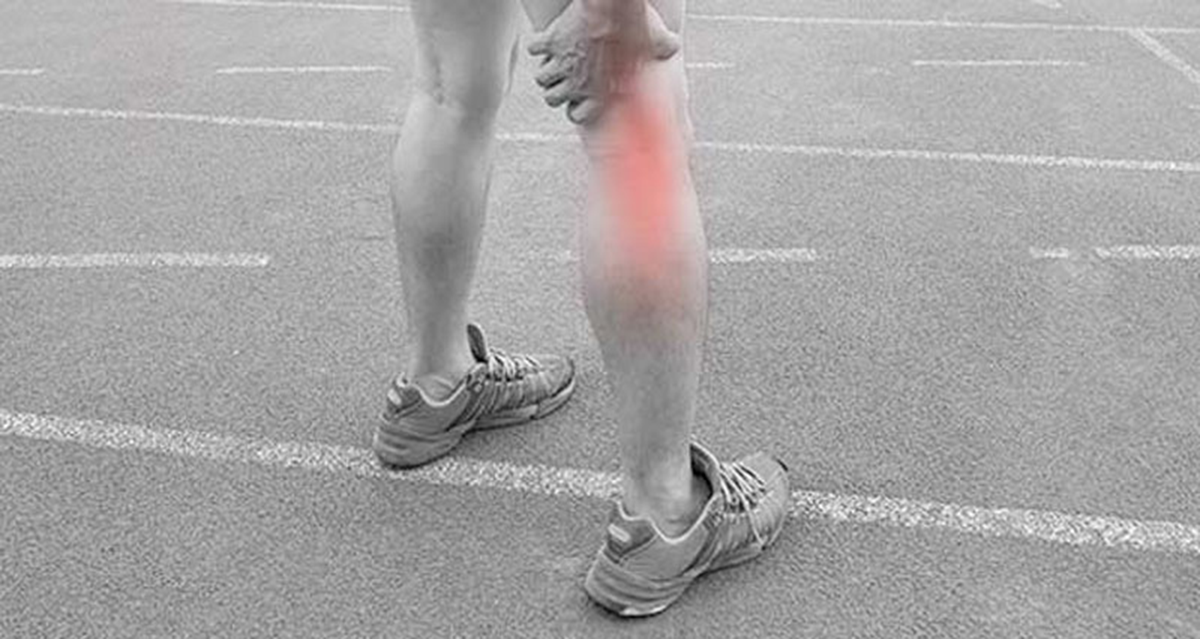Experiencing discomfort at the back of the knee, known as posterior knee pain, often originates from various injuries. These injuries can manifest as either acute, which occurs suddenly, or chronic, which develops gradually knee pain. In the following sections, we’ll navigate through the common causes of these two forms of knee discomfort.
Medically reviewed by Dr Chaminda Goonetilleke, 30th Nov. 2021
Acute Pain Behind the Knee: Causes and Symptoms
Acute pain behind the knee often strikes suddenly, commonly due to ligament sprains, muscle/tendon strains, or bone fractures. This allows you to typically identify a specific event that triggered the injury. Below we delve into several frequent acute injuries causing pain in the back of the knee.
Hamstring Tendon Strain
A tear in any of the hamstring tendons leads to a hamstring tendon strain, with the biceps femoris tendon strain being the most prevalent. Sprinters and athletes participating in kicking sports encounter this injury often.
Symptoms:
- Sudden sharp pain in the back of the knee
- Swelling, tenderness, and/or warmth at the injury site
Ruling out a complete tendon rupture or an avulsion strain is critical through an accurate diagnosis.
Biceps Femoris Tendon Avulsion
An avulsion strain arises when a tendon tears and yanks a small bone fragment along.
Here are its typical symptoms:
- Sudden severe pain in the back of the knee
- Immediate swelling
- Tenderness in the back of the knee
Read more on biceps femoris tendon avulsion
Posterolateral Corner Injury
The posterolateral corner of the knee comprises various structures.
Its injury might trigger the following symptoms:
- Pain and swelling at the back and outside of your knee
- Tenderness on the outer side of your knee
- Instability in the knee joint
Chronic Pain Behind the Knee: Causes and Symptoms
Gradual pain at the back of the knee is often connected to overuse. Unlike acute injuries, pinpointing a precise event causing the injury is unlikely. However, untreated or improperly healed acute injuries may evolve into chronic conditions.
Ignoring the early signs of chronic knee injuries could complicate treatment.
Baker’s Cyst or Popliteal Cyst
A Baker’s Cyst, or Popliteal Cyst, is a swelling extending out from the back of the knee, often about the size of a golf ball. Its size can fluctuate over time.
Common symptoms are:
- A feeling of pressure in the back of your knee
- Difficulty bending the knee
Gastrocnemius Tendinopathy
Gastrocnemius tendinopathy (or tendinitis) refers to the inflammation or degeneration of the calf muscle tendon at the knee’s back. Runners and sprinters are more likely to develop this overuse injury.
Its symptoms include:
- Gradual onset of pain behind the knee
- Tenderness when pressing at the back of the knee
- Pain when standing on tiptoes
Biceps Femoris Tendinopathy
Biceps femoris tendinopathy (or tendonitis) indicates the inflammation or degeneration of the hamstring tendon where it connects at the back of your knee.
Symptoms encompass:
- Tenderness and swelling at a specific point at the back of your knee
- Pain that developed over time
- Stiffness in the morning or after prolonged periods of sitting
Popliteus Strain/Tendinopathy
The small muscle situated at the knee’s back, the Popliteus, can tear or get injured from overuse, particularly due to twisting activities.
Symptoms may involve:
- Acute (sudden onset) or gradual onset pain behind the knee
- Tenderness when pressing in at the back of the knee
- Discomfort while flexing your leg against resistance, with your shin bone rotated outward indicates a potential Popliteus injury.
Referred Pain Behind the Knee: Causes and Symptoms
Injuries or dysfunctions in the lower back and hips can also lead to posterior knee pain.
Symptoms:
- Sciatic discomfort manifests as a radiating sensation in your posterior thigh, joint, and/or lower limb.
- Positive results on the slump test, which identifies sciatic-type referred pain
Knee Joint Swelling
Swelling within the knee joint serves as a symptom rather than a specific injury. A comprehensive knee assessment is necessary to determine the root cause of any effusion (swelling). Previous injuries often contribute to chronic knee swelling and the development of a Baker’s Cyst.



